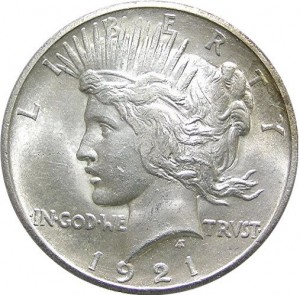The bill calls for the issue of no more than 500,000 $1 silver coins commemorating the Morgan dollar and the Peace dollar in 2021. If passed, 2021 will mark the 100th anniversary of the end of the Morgan Dollar and the beginning of the Peace Dollar.
Aside from being excited about the issue of the coin, the one line that has caught the interest of collectors is that “it is the sense of Congress that if the Secretary determines it to be feasible and cost effective, the Secretary may mint some of the coins minted under this Act at the Nevada State Museum (formerly a United States Mint facility) located in Carson City, Nevada.”
Although it seems like a good idea, there are a lot of questions whether striking coins in Carson City would be feasible. Since the facility is an active museum, would Nevada be willing to give up a piece of their operations to the federal government? How disruptive would be to the museum’s activities before and after striking the coins?
How would the U.S. Mint strike coins at the museum? While the facility has old coining presses used for demonstrations, they may not be capable of manufacturing modern coinage. Then there is the other equipment involved including an upsetting mill to put an edge on the coin.
The Carson City Mint was built in 1863 to building codes and security standards of the mid-19th century. After the Mint stopped striking circulating coins in 1893, the building became as Assay Office. In 1933, the Great Depression ended its service as an Assay Office. The federal government sold the building to Nevada in 1939. While the Nevada State Museum has updated the building’s security, it is doubtful that it would meet modern U.S. Mint requirements.
Striking coins with the CC mintmark may have an appeal to the collecting community, it might not be feasible and cost-effective.
S. 239: Christa McAuliffe Commemorative Coin Act of 2019
The Senate passed the Christa McAuliffe Commemorative Coin Act of 2019 in July. Like the Women’s Suffrage Centennial Commemorative Coin Act (S. 1235) passed in June, the bill is being held at the desk in the House of Representative because of an objection by one of its members.
A source claims that a freshman member of the House has objected to these bills being first passed by the Senate. This member cites Article I Section 7 of the United States Constitution where it says that “All bills for raising revenue shall originate in the House of Representatives.” A spokesperson in the House ’Clerk’s office would not confirm or deny the ’source’s claim.


